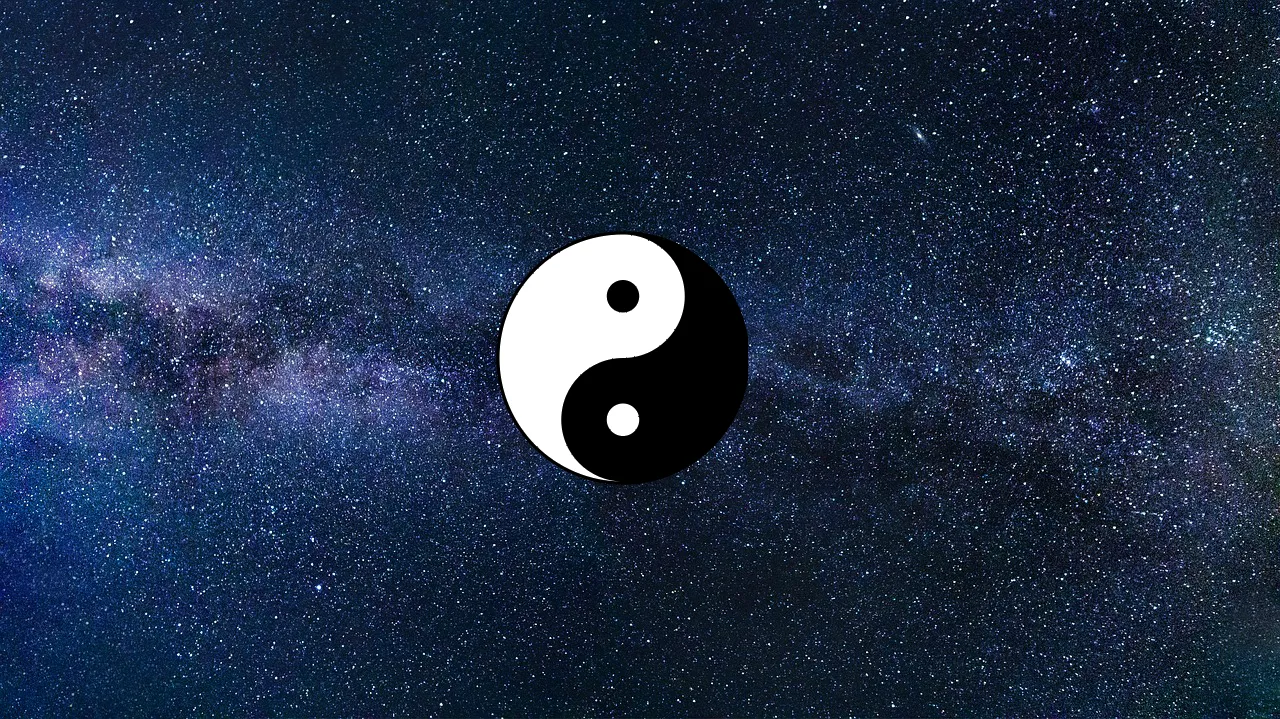
The Dichotomy of Chaos and Order
Contemplating the vastness of the cosmos, the intricacy of our biological and physical make up, or the profoundness of the human experience can lend itself to an overwhelming dive into chaos. This is the realm of the unknown. Where we cannot discern reality, distill meaning, or identify phenomena. If order and understanding are the stars in the universe, chaos is the blackness between them. Focusing on the endlessness of space, the stars become obsolete, granting us some perspective on how little we understand.
We spend much of life, especially of early life, staring into the unknown and realizing order out of it, conquering new ground as we grow. We learn to identify and characterize objects and processes, and how to communicate and describe these concepts. The more that we learn, however, the more obvious it becomes that we will never know everything. As we age and become specialized individuals in diverging fields, it becomes ever more salient how expansive life is. Each of our unique journeys shape our personalities to reflect back our distinct cumulative environments.
Wading through the sea of chaos and constructing order is a difficult task in and of itself; doing so accurately, is profoundly more tricky. Order is not inherently good, and there are many tyrannical systems we can create for ourselves. The drive to label and box things, and to subsequently categorize and organize them, can lead us to form totalitarian, all-inclusive, world views. We often misrepresent the truth in order to neatly conceptualize it or convey it. This mistake can be observed in lying, overgeneralizing, and oversimplifying. We should be wary to not pretend to understand that which we do not.
-Dr. Warner Slack

Deriving order is crucial to our survival. We cannot properly navigate an environment or situation which we do not understand, hence our evolutionarily adapted capacity for creating internal representations of the world. Creating and maintaining order is the mechanism by which we make sense of something, and a necessary process for us to act in the world. This mechanism of representation and integration can be thought of as the process of acquiring knowledge. As we organize the chaos in our path, we create clear paths through the forests of unknown. Roughly (and perhaps over simplistically), one could say that a narrowly intelligent person is one who has organised particular areas especially meticulously, and a generally intelligent one has covered more vast territories. Intelligence, however, is quite distinct from wisdom.
If intelligence is the ability to represent information in a more understandable way, then wisdom is more like being able to intuit the information and derive meaning from it without reconstruction. The semanticization of memory is the process by which we forget the details of our experiences and instead pull out the important meaning behind it. The terms knowledge and understanding are colloquially used interchangeably, but here the linguistic distinction is important. To know something is different than ti understand it. The first time that you ride a bike, you know how to do it. You can successfully step onto it, alight your handlebars in the direction you want to go, and peddle at the optimal rate, but you are likely thinking about all of these things while doing so. After years of doing it, you gain an understanding, a feeling, of how to ride the bike. It might even mess you up to consider the position of your feet, and the weight you put into turns with your shoulders. The same is true with driving a car, playing an instrument, dancing, socializing, etc.
It is often more difficult to convey intuition than technical explanation, so wisdom is something to be cultivated by the individual. And while wisdom is something to be cherished, it is not without loss that we extract it from the world. Like anything in life there is an ebb and flow, and give and take. In the process of distilling down the numerous happy events with a person, for example, we end up forgetting many of the specifics. The same can be said about creating order from chaos in the formation of knowledge as well. Once we have conquered land, paved the roads, and deforested the darkness, we cannot simply go back to blissful ignorance. We can try to ignore illuminated truths, but it does not fair us well. Once we see, we cannot un-see.
-Thích Nhất Hạnh

Chaos alone is... well chaos. Nobody can live in an environment which they cant understand. Order alone is tyranny, its boring, its uninteresting, and its restricting. It is between these two domains which we must situate ourselves. By always having a grasp on the situation, but being surprised enough to always learn more, we find ourselves succeeding and growing. When we get the balance just right, we can experience moments of tangible importance and significance. In these moments of profound meaning we are enveloped in the present moment. We are not thinking, we are not doing, we are not feeling, we simply are. Everything seems to align, and the interconnected nature of life becomes palpable. Public thinker and psychologist, Jordan Peterson explains in the short (2:38) clip below how meaning arises from the convergence of these two forces: Chaos and Order.
-Jon Kabat-Zinn
Thanks so much for reading this thought tangent; I plan to continue it when I have some more time. Please leave any questions, thoughts, or requests below!

More Like This
- Manipulating Memories: Instantly Eliminate a Fear
- Neural Plasticity: Shaping How we View Ourselves
- PTSD: The Psychology and Neurology of Trauma and Psychedelic Treatments
- How to Manifest your Intentions: The Philosophy and Neuroscience of Mindfulness Meditation
Images
- Stars, Pixabay. Edited with pixlr
- Hands, Pixabay
- Balloon, Pixaby
